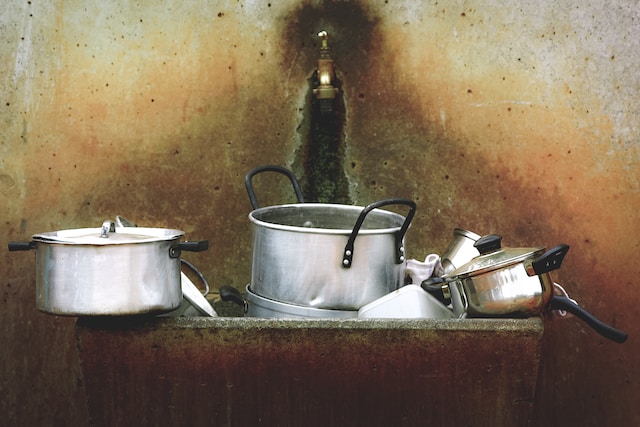Whether it’s a ring around your bathtub or a white build-up on bathroom fixtures, hard water is causing problems in homes nationwide. Hard water can harm appliances like dishwashers and water heaters, limiting working life and raising energy costs. Fortunately, there are solutions to help with these issues. The first step is understanding what causes hard water, how it affects your skin and hair, and what you can do about it.
What is Hard Water?
Water softening is a simple concept. Water softening systems remove calcium and magnesium minerals from the water before it enters your home. The result is reduced mineral build-up and better soap and shampoo performance. It minimizes the detergent and soap needed to wash dishes, clothes and skin. The water softening process is a natural part of the hydrologic cycle. As water evaporates from our oceans and lakes, it travels through soil and rock into underground aquifers. As it filters through soil and rock, water dissolves small amounts of naturally occurring minerals, including calcium and magnesium. Groundwater sources carry these minerals into our homes. While hard water poses no health risks, it can cause problems for homeowners, including mineral build-up and decreased efficiency of appliances and utensils that use water. As well as drying out skin and hair, it can. In addition, hard water can lead to unsightly scale deposits on faucets, showerheads and water heaters.
Signs of Hard Water
The most obvious sign of hard water is the whitish mineral deposits left behind by the water on surfaces such as tubs and sinks. These are usually calcium and magnesium deposits. These can also clog pipes, leading to expensive repairs or replacements. Another indication of hard water is soap residue and scum that is difficult to rinse away from skin and hair. Soaps and shampoos are also less sudsy when used with hard water. The most serious effect of hard water is the damage it causes to plumbing and appliances in your home over time. The high concentration of dissolved minerals can cause scaling and build-up in pipes and devices such as your water heater and washing machine. Over time, hard water can reduce the efficiency of these appliances, raising your utility bills and causing a great deal of frustration. The harmful effects of hard water can be prevented by installing a water softener. The water is treated before it passes through your plumbing system and exits the faucet as part of a whole-house hard water treatment Tampa.
How to Test for Hard Water
Water can pick up hardness minerals like calcium and magnesium as it travels through soil, rocks and pipes to reach your home. Eventually, this can lead to scale build-up and affect your washing machine, dishwasher, coffee maker, and other water-dependent appliances. These effects make it harder to clean your house and skin and reduce the efficiency and lifespan of these devices.
The easiest way to determine if your water is hard is by asking your municipal water supplier for a water quality report. They are required by law to provide these reports to every customer annually. You can also purchase a liquid test kit at most hardware and home improvement stores. The kit uses drops of a special reagent in your water that is compared to a color chart to measure hardness. The higher the number, the more hard your water is. One grain per gallon is the most common measurement, but you can use milligrams or parts per million (ppm). The lower the number, the softer your water.
Treatments for Hard Water
Systems for softening water take out the minerals that make water hard. These include whole-house systems that use ion exchange to trade calcium and magnesium ions for sodium ions and devices that attach to faucets to reduce the amount of hardness-causing minerals. These water softeners help eliminate many of the issues associated with hard water, including stains on showerheads and coffeepots, spots on glasses and dishes, dull hair and dry skin. The mineral residue in appliances ruins their efficiency, often costing you money in repairs or higher energy bills. The dissolved calcium and magnesium in hard water are not a health risk. The minerals can help people get the recommended daily intake of calcium and magnesium, especially if they drink a lot of water. However, the residue left behind by soap and detergent in hard water causes problems much easier to solve with a home water softener. The only downside to using these machines is that they add sodium to your diet.

